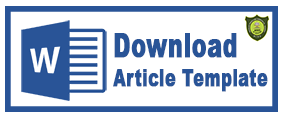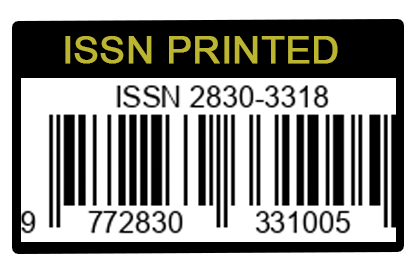Kecerdasan Artifisial dan Perencanaan Pendidikan dalam Konteks Kurikulum Merdeka di Indonesia
DOI:
https://doi.org/10.53398/ja.v4i1.635Keywords:
Independent Curriculum, National Standardization, Local Needs, Educational Disruption, Educational GapAbstract
This study aims to analyze the controversy that has emerged around the implementation of the Independent Curriculum in Indonesia, focusing on the debate between national standardization efforts and meeting local needs in the midst of the era of disruption. The research approach used is a qualitative approach with case studies in several schools in urban and rural areas. Data were collected through participant observation, in-depth interviews with teachers, principals, students, and parents, and studies of curriculum documents and education policies. The analysis uses the interactive 3 models of Miles and Huberman. The results of the study indicate tension between the demands of curriculum uniformity to achieve national standards and the need for curriculum flexibility that is adjusted to the local context. Differences in school capacity, resource availability, and student characteristics in various regions are the main factors that trigger the controversy. This study contributes to a deeper understanding of the challenges of implementing the Independent Curriculum and offers recommendations for solutions to overcome the gap between national standardization and local needs, so that it can improve the quality of education in Indonesia evenly
References
Afzal, A., Khan, S., Daud, S., Ahmad, Z., & Butt, A. (2023). Addressing the digital divide: Access and use of technology in education. Journal of Social Sciences Review, 3(2), 883–895.
Ajani, O. A. (2024). Enhancing Pre-Service Teacher Education: Crafting a Technology-Responsive Curriculum for Modern Classrooms and Adaptive Learners. Research in Educational Policy and Management, 6(2), 209–229.
Alam, A. (2021). Should robots replace teachers? Mobilisation of AI and learning analytics in education. 2021 International Conference on Advances in Computing, Communication, and Control (ICAC3), 1–12.
Alshraah, S. M., ALawawdeh, N., Issa, S. H. M., & Alshatnawi, E. F. (2024). Digital initiative, literacy and gender equality: Empowering education and language for sustainable development. J. Adv. Humanit, 5(2).
Azzahra, N. F., & Amanta, F. (2021). Promoting digital literacy skill for students through improved school curriculum. Policy Brief.
Božić, V. (2023). Artifical intelligence as the reason and the solution of digital divide. Language Education and Technology, 3(2).
Burden, P. R. (2025). Classroom management: Creating a successful K-12 learning community. John Wiley & Sons.
Catacutan, A., Kilag, O. K., Diano Jr, F., Tiongzon, B., Malbas, M., & Abendan, C. F. (2023). Competence-Based Curriculum Development in a Globalized Education Landscape. Excellencia: International Multi-Disciplinary Journal of Education (2994-9521), 1(4), 270–282.
Chan, C. K. Y., & Tsi, L. H. Y. (2023). The AI revolution in education: will AI replace or assist teachers in higher education? ArXiv Preprint ArXiv:2305.01185.
Ciurana, M. B., & García, O. M. (2025). “ Help! I feel unprepared”: Exploring university faculty and autistic students’ voices on self-efficacy in higher education inclusion. Teaching and Teacher Education, 159, 104990.
Dias, L., & Victor, A. (2022). Teaching and learning with mobile devices in the 21st century digital world: Benefits and challenges. European Journal of Multidisciplinary Studies, 7(1), 26–34.
Dumitru, D., & Halpern, D. F. (2023). Critical thinking: Creating job-proof skills for the future of work. Journal of Intelligence, 11(10), 194.
Falloon, G. (2020). From digital literacy to digital competence: the teacher digital competency (TDC) framework. Educational Technology Research and Development, 68(5), 2449–2472.
Fitria, T. N. (2021). Artificial intelligence (AI) in education: Using AI tools for teaching and learning process. Prosiding Seminar Nasional & Call for Paper STIE AAS, 134–147.
George, A. S. (2023). Preparing students for an AI-driven world: Rethinking curriculum and pedagogy in the age of artificial intelligence. Partners Universal Innovative Research Publication, 1(2), 112–136.
Grimus, M. (2020). Emerging technologies: Impacting learning, pedagogy and curriculum development. Emerging Technologies and Pedagogies in the Curriculum, 127–151.
Helsper, E. (2021). The digital disconnect: The social causes and consequences of digital inequalities.
Kooli, C. (2023). Chatbots in education and research: A critical examination of ethical implications and solutions. Sustainability, 15(7), 5614.
Law, M. Y. (2022). A review of curriculum change and innovation for higher education. Journal of Education and Training Studies, 10(2), 16.
Luo, Q. Z., & Hsiao-Chin, L. Y. (2023). The influence of AI-powered adaptive learning platforms on student performance in Chinese classrooms. Journal of Education, 6(3), 1–12.
Mårell-Olsson, E., Mejtoft, T., Tovedal, S., & Söderström, U. (2021). Opportunities and challenges of using socially intelligent agents: increasing interaction and school participation for children suffering from a long-term illness. The International Journal of Information and Learning Technology, 38(4), 393–411.
Molnár, T., Jenei, S., Moreno, E., Lakshmi, V. P., Malatyinszki, S., & Dávid, L. D. (2024). The Role of Lifelong Learning in Labour Market Competitiveness. Journal of Ecohumanism, 3(8), 7743–7761.
Murtaza, M., Ahmed, Y., Shamsi, J. A., Sherwani, F., & Usman, M. (2022). AI-based personalized e-learning systems: Issues, challenges, and solutions. IEEE Access, 10, 81323–81342.
Nain, A., Bohra, N. S., Tewari, D., Grewal, H., & Ahmad, V. (2024). AI for Teacher Well-being: Enhancing Job Satisfaction and Reducing Stress in Indian Secondary Schools. 2024 4th International Conference on Advancement in Electronics & Communication Engineering (AECE), 668–673.
Neumeyer, X., Santos, S. C., & Morris, M. H. (2020). Overcoming barriers to technology adoption when fostering entrepreneurship among the poor: The role of technology and digital literacy. IEEE Transactions on Engineering Management, 68(6), 1605–1618.
Ng, D. T. K., Leung, J. K. L., Su, J., Ng, R. C. W., & Chu, S. K. W. (2023). Teachers’ AI digital competencies and twenty-first century skills in the post-pandemic world. Educational Technology Research and Development, 71(1), 137–161.
Nguyen, A., Ngo, H. N., Hong, Y., Dang, B., & Nguyen, B.-P. T. (2023). Ethical principles for artificial intelligence in education. Education and Information Technologies, 28(4), 4221–4241.
Opesemowo, O. (2024). Artificial Intelligence in Education, Bridging Community Gap: A Phenomenological Approach. International Journal of New Education, 14.
Pillay, H., & Panth, B. (2022). Foundational (K-12) education system: Navigating 21st century challenges.
Puteri, S. A., Saputri, Y., & Kurniati, Y. (2024). The impact of artificial intelligence (AI) technology on students’ social relations. BICC Proceedings, 2, 153–158.
Rane, N., Choudhary, S., & Rane, J. (2023). Education 4.0 and 5.0: Integrating artificial intelligence (AI) for personalized and adaptive learning. Nov.
Sajja, R., Sermet, Y., Cikmaz, M., Cwiertny, D., & Demir, I. (2024). Artificial intelligence-enabled intelligent assistant for personalized and adaptive learning in higher education. Information, 15(10), 596.
Schiff, D. (2022). Education for AI, not AI for education: The role of education and ethics in national AI policy strategies. International Journal of Artificial Intelligence in Education, 32(3), 527–563.
Seo, K., Tang, J., Roll, I., Fels, S., & Yoon, D. (2021). The impact of artificial intelligence on learner–instructor interaction in online learning. International Journal of Educational Technology in Higher Education, 18, 1–23.
Steimers, A., & Schneider, M. (2022). Sources of risk of AI systems. International Journal of Environmental Research and Public Health, 19(6), 3641.
Strielkowski, W., Grebennikova, V., Lisovskiy, A., Rakhimova, G., & Vasileva, T. (2024). AI‐driven adaptive learning for sustainable educational transformation. Sustainable Development.
Thornhill-Miller, B., Camarda, A., Mercier, M., Burkhardt, J.-M., Morisseau, T., Bourgeois-Bougrine, S., Vinchon, F., El Hayek, S., Augereau-Landais, M., & Mourey, F. (2023). Creativity, critical thinking, communication, and collaboration: assessment, certification, and promotion of 21st century skills for the future of work and education. Journal of Intelligence, 11(3), 54.
van den Berg, G., & du Plessis, E. (2023). ChatGPT and generative AI: Possibilities for its contribution to lesson planning, critical thinking and openness in teacher education. Education Sciences, 13(10), 998.
Williamson, B., & Eynon, R. (2020). Historical threads, missing links, and future directions in AI in education. In Learning, Media and Technology (Vol. 45, Issue 3, pp. 223–235). Taylor & Francis.
Yetti, E. (2024). Pedagogical innovation and curricular adaptation in enhancing digital literacy: A local wisdom approach for sustainable development in Indonesia context. Journal of Open Innovation: Technology, Market, and Complexity, 10(1), 100233.
Downloads
Published
How to Cite
Issue
Section
License
Copyright (c) 2025 Jurnal Al-Kifayah: Ilmu Tarbiyah dan Keguruan

This work is licensed under a Creative Commons Attribution-NonCommercial-ShareAlike 4.0 International License.



.png)






